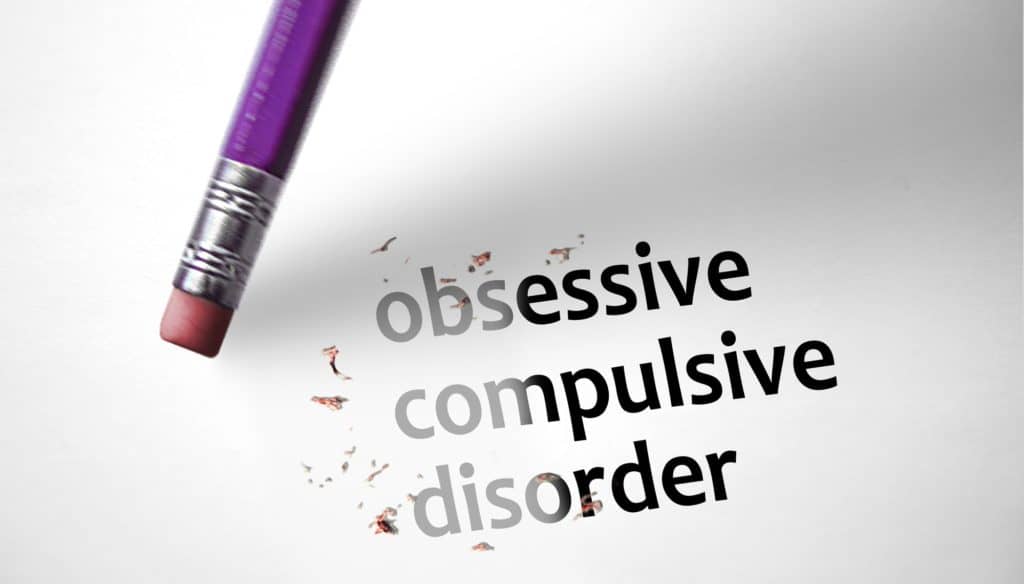Do you struggle with OCD? If so, you’re not alone. Did you know that an estimated 1.2% of American adults dealt with OCD in the past year?
There’s no doubt that living with OCD can feel incredibly isolating and debilitating. When left untreated, it can become progressively worse, and it can be very frustrating for individuals and their loved ones.
That said, there are many treatment options available to alleviate OCD symptoms. Hypnosis for OCD is one of the most promising opportunities to consider. Let’s get to what you need to know!
What Is OCD?
Obsessive Compulsive Disorder (OCD) is a mental health disorder that impacts people of all ages from all backgrounds.
Obsessions refer to unwanted, intrusive urges or thoughts that trigger intense feelings of discomfort. These obsessions occur frequently, and they are beyond the person’s control.
Some common fear-based obsessions in OCD are:
- fear of contamination
- fear of acting on impulse to harm self or others
- fear of offending God
- fear of losing or forgetting important information
- fear of sickness happening to self or others
To ease these obsessions, people engage in compulsions. Compulsions are the second component in OCD.
Compulsions refer to repetitive behaviors or thoughts that a person uses to alleviate or counteract obsessions.
For example, someone who fears spreading germs may wash their hands several times in a row. Another person who worries about others getting sick may find comfort in counting in numbers under the pretense that the “order of numbers” will stop the fear from manifesting.
Common compulsions in OCD include:
- excessive showering, bathing, or brushing teeth
- cleaning household items incessantly
- repeatedly checking a particular object or situation
- rereading or rewriting material
- repeating specific body movements
- rearranging things in a particular order
- repeating activities in ‘safe multiples’
- canceling or undoing ‘bad’ behaviors
To be diagnosed with OCD, a person must exhibit both obsessions and compulsions. They tend to be time-consuming (lasting at least 1 hour per day). Likewise, they tend to cause significant distress in one’s daily functioning.
What Is Hypnosis and How Does It Work?
Hypnosis refers to the state of focused attention and increased suggestibility. In psychology, some experts refer to hypnosis as hypnotherapy. Hypnotherapists use hypnosis for a variety of purposes including the treatment of:
- chronic pain management
- ADHD
- problem drinking and substance use disorders
- depression
- anxiety
- trauma
- self-esteem and self-worth
Despite what some people think, hypnosis doesn’t refer to amnesia. In other words, you will remember what happened to you while hypnotized.
We all know that “twinkle” state that we feel between being asleep and being awake. Hypnosis somewhat taps into that space. It helps you shift from the more conscious mind to a more subconscious realm.
However, you cannot be hypnotized against your consent. The media sometimes (falsely) conveys that you can be hypnotized involuntarily. However, this is not the case.
Finally, hypnotists do not control your actions. You still retain control over what you do and don’t do during the session.
Hypnosis is not magic. It’s merely a scientific tool that can evoke powerful healing and change.
Understanding the Benefits of Hypnosis for OCD
For one, hypnosis provides a sense of deep relaxation. This relaxed state helps neutralize one’s intense emotions.
OCD is rooted in pervasive anxiety. Being able to reduce this anxiety can be paramount in intervening with clients successfully.
Appropriate hypnotic techniques teach clients to identify the difference between their thoughts and their “OCD thoughts.” Other techniques help them cope and relax with the distress associated with “sitting with the obsessive thinking.”
Hypnosis also helps reprogram and rewrite the unhelpful scripts in your mind. Changing these scripts can break bad habits and introduce healthier ways to function.
How to Successfully Overcome OCD
Like all mental illnesses, OCD is a chronic disease. That means that there isn’t a cure. You can actively be in a ‘recovery,’ but you should always be aware of your environmental and biological triggers.
Doubt and guilt represent two significant components of OCD. After all, OCD can make you feel skeptical of the world you live in. The incessant thinking and behaving can create agonizing shame and guilt.
For example, you may logically know that you are acting irrationally, but your emotions overrule these facts. Your emotions seemingly make it impossible to act differently.
Treatment may depend on the individual. Some people respond positively to psychiatric medication like antidepressants. Others benefit from traditional forms of cognitive-behavioral therapy.
Regardless, you should not try and fix the problem on your own. This is not a matter of willpower or “talking sense into yourself.” It’s a mental disease that deserves appropriate treatment.
Recovery may take time. This timeline varies on the individual. It also varies on treatment modality. Be accepting and patient with your process.
Several factors can impede one’s OCD treatment. These factors include:
- co-occurring illnesses like depression or eating disorders
- the person’s willingness to adhere to treatment
- medical conditions
- the intensity and duration of the OCD
- previous OCD treatment episodes
- family and peer support
- overall psychological health and global self-esteem
Despite the obstacles, pursuing recovery is always worth it. Even if it takes time, learning how to practice a new way of thinking and behaving is one of the most rewarding feelings you can experience.
Final Thoughts
Living with OCD can be frightening and frustrating for you and your loved ones. However, you don’t have to suffer alone! Treatment is available, and hypnosis for OCD can make a tremendous difference in your mental well-being.
Are you interested in scheduling your own professional hypnosis session? Schedule your appointment today!


